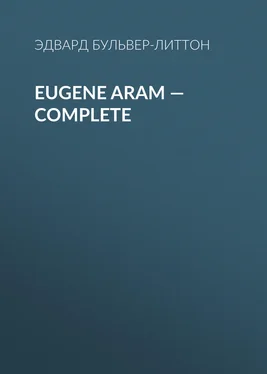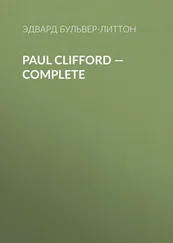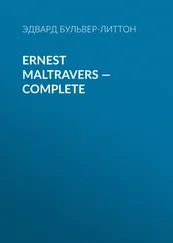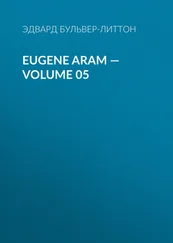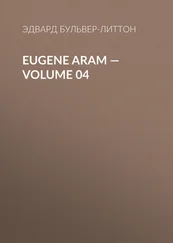Эдвард Бульвер-Литтон - Eugene Aram — Complete
Здесь есть возможность читать онлайн «Эдвард Бульвер-Литтон - Eugene Aram — Complete» — ознакомительный отрывок электронной книги совершенно бесплатно, а после прочтения отрывка купить полную версию. В некоторых случаях можно слушать аудио, скачать через торрент в формате fb2 и присутствует краткое содержание. Жанр: foreign_prose, literature_19, Европейская старинная литература, foreign_antique, на английском языке. Описание произведения, (предисловие) а так же отзывы посетителей доступны на портале библиотеки ЛибКат.
- Название:Eugene Aram — Complete
- Автор:
- Жанр:
- Год:неизвестен
- ISBN:нет данных
- Рейтинг книги:4 / 5. Голосов: 1
-
Избранное:Добавить в избранное
- Отзывы:
-
Ваша оценка:
- 80
- 1
- 2
- 3
- 4
- 5
Eugene Aram — Complete: краткое содержание, описание и аннотация
Предлагаем к чтению аннотацию, описание, краткое содержание или предисловие (зависит от того, что написал сам автор книги «Eugene Aram — Complete»). Если вы не нашли необходимую информацию о книге — напишите в комментариях, мы постараемся отыскать её.
Eugene Aram — Complete — читать онлайн ознакомительный отрывок
Ниже представлен текст книги, разбитый по страницам. Система сохранения места последней прочитанной страницы, позволяет с удобством читать онлайн бесплатно книгу «Eugene Aram — Complete», без необходимости каждый раз заново искать на чём Вы остановились. Поставьте закладку, и сможете в любой момент перейти на страницу, на которой закончили чтение.
Интервал:
Закладка:
“I in these flowery meads would be,
These crystal streams should solace me,
To whose harmonious bubbling voice
I with my angle would rejoice.”
When Walter left his uncle, he hurried, scarcely conscious of his steps, towards his favourite haunt by the water-side. From a child, he had singled out that scene as the witness of his early sorrows or boyish schemes; and still, the solitude of the place cherished the habit of his boyhood.
Long had he, unknown to himself, nourished an attachment to his beautiful cousin; nor did he awaken to the secret of his heart, until, with an agonizing jealousy, he penetrated the secret at her own. The reader has, doubtless, already perceived that it was this jealousy which at the first occasioned Walter’s dislike to Aram: the consolation of that dislike was forbid him now. The gentleness and forbearance of the Student’s deportment had taken away all ground of offence; and Walter had sufficient generosity to acknowledge his merits, while tortured by their effect. Silently, till this day, he had gnawed his heart, and found for its despair no confidant and no comfort. The only wish that he cherished was a feverish and gloomy desire to leave the scene which witnessed the triumph of his rival. Every thing around had become hateful to his eyes, and a curse had lighted upon the face of Home. He thought now, with a bitter satisfaction, that his escape was at hand: in a few days he might be rid of the gall and the pang, which every moment of his stay at Grassdale inflicted upon him. The sweet voice of Madeline he should hear no more, subduing its silver sound for his rival’s ear:—no more he should watch apart, and himself unheeded, how timidly her glance roved in search of another, or how vividly her cheek flushed when the step of that happier one approached. Many miles would at least shut out this picture from his view; and in absence, was it not possible that he might teach himself to forget? Thus meditating, he arrived at the banks of the little brooklet, and was awakened from his reverie by the sound of his own name. He started, and saw the old Corporal seated on the stump of a tree, and busily employed in fixing to his line the mimic likeness of what anglers, and, for aught we know, the rest of the world, call the “violet fly.”
“Ha! master,—at my day’s work, you see:—fit for nothing else now. When a musquet’s halfworn out, schoolboys buy it—pop it at sparrows. I be like the musket: but never mind—have not seen the world for nothing. We get reconciled to all things: that’s my way—augh! Now, Sir, you shall watch me catch the finest trout you have seen this summer: know where he lies—under the bush yonder. Whi—sh! Sir, whi—sh!”
The Corporal now gave his warrior soul up to the due guidance of the violet-fly: now he shipped it lightly on the wave; now he slid it coquettishly along the surface; now it floated, like an unconscious beauty, carelessly with the tide; and now, like an artful prude, it affected to loiter by the way, or to steal into designing obscurity under the shade of some overhanging bank. But none of these manoeuvres captivated the wary old trout on whose acquisition the Corporal had set his heart; and what was especially provoking, the angler could see distinctly the dark outline of the intended victim, as it lay at the bottom,—like some well-regulated bachelor who eyes from afar the charms he has discreetly resolved to neglect.
The Corporal waited till he could no longer blind himself to the displeasing fact, that the violet-fly was wholly inefficacious; he then drew up his line, and replaced the contemned beauty of the violet-fly, with the novel attractions of the yellow-dun.
“Now, Sir!” whispered he, lifting up his finger, and nodding sagaciously to Walter. Softly dropped the yellow-dun upon the water, and swiftly did it glide before the gaze of the latent trout; and now the trout seemed aroused from his apathy, behold he moved forward, balancing himself on his fins; now he slowly ascended towards the surface; you might see all the speckles of his coat;—the Corporal’s heart stood still—he is now at a convenient distance from the yellow-dun; lo, he surveys it steadfastly; he ponders, he see-saws himself to and fro. The yellow-dun sails away in affected indifference, that indifference whets the appetite of the hesitating gazer, he darts forward; he is opposite the yellow-dun,—he pushes his nose against it with an eager rudeness,—he—no, he does not bite, he recoils, he gazes again with surprise and suspicion on the little charmer; he fades back slowly into the deeper water, and then suddenly turning his tail towards the disappointed bait, he makes off as fast as he can,—yonder,—yonder, and disappears! No, that’s he leaping yonder from the wave; Jupiter! what a noble fellow! What leaps he at?—a real fly—“Damn his eyes!” growled the Corporal.
“You might have caught him with a minnow,” said Walter, speaking for the first time.
“Minnow!” repeated the Corporal gruffly, “ask your honour’s pardon. Minnow!—I have fished with the yellow-dun these twenty years, and never knew it fail before. Minnow!—baugh! But ask pardon; your honour is very welcome to fish with a minnow if you please it.”
“Thank you, Bunting. And pray what sport have you had to-day?”
“Oh,—good, good,” quoth the Corporal, snatching up his basket and closing the cover, lest the young Squire should pry into it. No man is more tenacious of his secrets than your true angler. “Sent the best home two hours ago; one weighed three pounds, on the faith of a man; indeed, I’m satisfied now; time to give up;” and the Corporal began to disjoint his rod.
“Ah, Sir!” said he, with a half sigh, “a pretty river this, don’t mean to say it is not; but the river Lea for my money. You know the Lea?—not a morning’s walk from Lunnun. Mary Gibson, my first sweetheart, lived by the bridge,—caught such a trout there by the by!—had beautiful eyes—black, round as a cherry—five feet eight without shoes—might have listed in the forty-second.”
“Who, Bunting!” said Walter smiling, “the lady or the trout?”
“Augh!—baugh!—what? Oh, laughing at me, your honour, you’re welcome, Sir. Love’s a silly thing—know the world now—have not fallen in love these ten years. I doubt—no offence, Sir, no offence—I doubt whether your honour and Miss Ellinor can say as much.”
“I and Miss Ellinor!—you forge yourself strangely, Bunting,” said Walter, colouring with anger.
“Beg pardon, Sir, beg pardon—rough soldier—lived away from the world so long, words slipped out of my mouth—absent without leave.”
“But why,” said Walter, smothering or conquering his vexation,—“why couple me with Miss Ellinor? Did you imagine that we,—we were in love with each other?”
“Indeed, Sir, and if I did, ‘tis no more than my neighbours imagine too.”
“Humph! your neighbours are very silly, then, and very wrong.”
“Beg pardon, Sir, again—always getting askew. Indeed some did say it was Miss Madeline, but I says,—says I,—‘No! I’m a man of the world—see through a millstone; Miss Madeline’s too easy like; Miss Nelly blushes when he speaks; scarlet is love’s regimentals—it was ours in the forty-second, edged with yellow—pepper and salt pantaloons! For my part I think,—but I’ve no business to think, howsomever—baugh!”
“Pray what do you think, Mr. Bunting? Why do you hesitate?”
“‘Fraid of offence—but I do think that Master Aram—your honour understands—howsomever Squire’s daughter too great a match for such as he!”
Walter did not answer; and the garrulous old soldier, who had been the young man’s playmate and companion since Walter was a boy; and was therefore accustomed to the familiarity with which he now spoke, continued, mingling with his abrupt prolixity an occasional shrewdness of observation, which shewed that he was no inattentive commentator on the little and quiet world around him.
Читать дальшеИнтервал:
Закладка:
Похожие книги на «Eugene Aram — Complete»
Представляем Вашему вниманию похожие книги на «Eugene Aram — Complete» списком для выбора. Мы отобрали схожую по названию и смыслу литературу в надежде предоставить читателям больше вариантов отыскать новые, интересные, ещё непрочитанные произведения.
Обсуждение, отзывы о книге «Eugene Aram — Complete» и просто собственные мнения читателей. Оставьте ваши комментарии, напишите, что Вы думаете о произведении, его смысле или главных героях. Укажите что конкретно понравилось, а что нет, и почему Вы так считаете.
